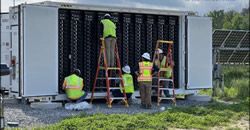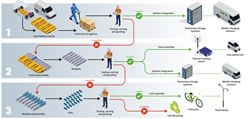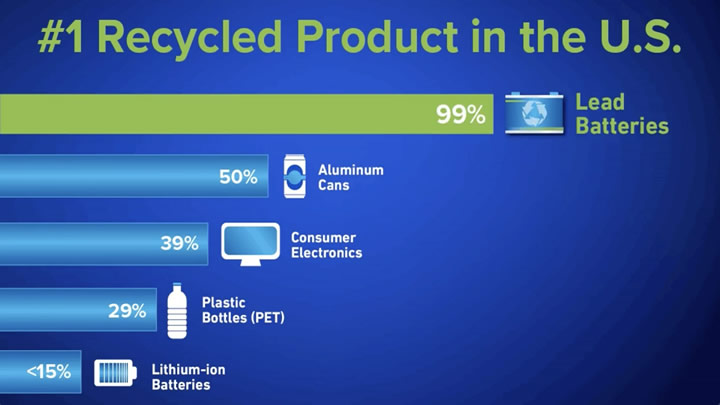Battery Energy Storage System (BESS) Decommissioning and End-of-Life Planning: Why Care Today?
When a BESS does reach the end of its useful life, disposal can be a complex task that must be carefully planned and executed. If you are just starting the permitting process, or in the early stages of BESS project development, this article is for you!
End-of-Life and Damaged Battery Shipping: Navigating State and Federal Regulations
Regulators are playing catch-up with the technologies and markets which are developing at high speed and carry significant risks as they mature. The requirements are constantly changing, it's easy to feel overwhelmed.
Second-Life Batteries Offer Businesses Sustainability and Cost Benefits
Reusing EV batteries in battery energy storage systems (BESS) offers a sustainable, cost-effective path for businesses to reduce electric bills while ensuring reliable power.
NEW STUDY CONFIRMS U.S.' MOST RECYCLED CONSUMER PRODUCT - LEAD BATTERIES - MAINTAINS REMARKABLE MILESTONE: 99% RECYCLING RATE
The Industry's Strong Circular Economy Keeps 160 Million Batteries from Landfills Annually; Creates Near-Zero Waste Model of Sustainability
Records 1 to 4 of 4
Featured Product

Nature's Generator MyGrid 10K
A 10,000W plug & play whole-home generator with a 10kWh LiFePO4 battery for reliable backup power. Features easy setup, flexible 120V/208-240V input, and solar/wind charging. Expandable with extra batteries or solar panels, and can pair two units for 20,000W for even larger energy needs. Powers your home during power outages, reduces electricity costs, and supports sustainable energy.




